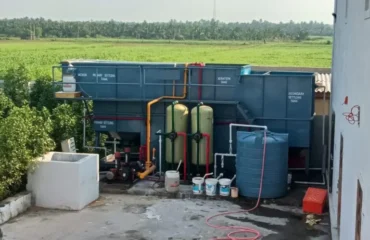Introduction
Satara, known for its rich historical and cultural heritage, is also emerging as a significant industrial hub. Among the various industries flourishing here, the pharmaceutical sector stands out. With the expansion of pharma industries in Satara, there is an increasing need for efficient wastewater management systems. Amrita Water Solution provides advanced Sewage Treatment Plants (STP) and Effluent Treatment Plants (ETP) designed specifically for the pharmaceutical sector in Satara. This article delves into the importance, components, and benefits of these plants for pharmaceutical industries in Satara.
Importance of Wastewater Treatment in the Pharmaceutical Industry
Environmental Protection
Pharmaceutical wastewater often contains hazardous chemicals and biological contaminants that can severely impact the environment if not treated properly. Effective wastewater treatment is essential to protect water bodies and maintain ecological balance.
Compliance with Regulations
Pharmaceutical companies must adhere to stringent environmental regulations that govern the discharge of industrial wastewater. Proper treatment ensures compliance and helps avoid legal issues and penalties.
Corporate Social Responsibility
Implementing sustainable wastewater treatment solutions reflects a company’s commitment to environmental stewardship and corporate social responsibility, enhancing its reputation and credibility.
Components of STP and ETP Plants
Primary Treatment
- Screening: Removes large particles and debris.
- Sedimentation: Settles and removes suspended solids.
Secondary Treatment
- Biological Treatment: Uses microorganisms to degrade organic pollutants.
- Aeration: Provides oxygen to support aerobic biological processes.
Tertiary Treatment
- Filtration: Removes fine particles and residual solids.
- Disinfection: Eliminates harmful pathogens and bacteria.
Benefits of STP and ETP Plants for Pharma Industries
Environmental Safety
Treated wastewater meets environmental safety standards, reducing the risk of pollution and protecting local ecosystems.
Regulatory Adherence
Ensuring that wastewater discharge meets local and national regulatory standards, thus avoiding fines and legal complications.
Cost Savings
Efficient wastewater treatment can lead to significant cost savings by reducing the need for fresh water, lowering waste disposal costs, and minimizing the risk of regulatory fines.
Enhanced Corporate Image
Companies that invest in advanced wastewater treatment solutions demonstrate their commitment to sustainability and environmental responsibility, which can improve their corporate image and attract environmentally conscious consumers and investors.
Challenges and Solutions
High Initial Costs
Solution: Offering flexible financing options and government incentives can make the adoption of advanced STP and ETP plants more feasible for pharmaceutical companies.
Technical Expertise
Solution: Providing comprehensive training and technical support to ensure the effective operation and maintenance of wastewater treatment plants.
Space Constraints
Solution: Designing compact and efficient treatment plants that can fit within the limited space available in urban and industrial areas.
Conclusion
The implementation of STP and ETP plants is crucial for the sustainable growth of the pharmaceutical industry in Satara. Amrita Water Solution offers state-of-the-art wastewater treatment solutions that help pharmaceutical companies protect the environment, comply with regulations, and enhance their corporate image. Investing in these advanced treatment systems not only benefits the environment but also contributes to the long-term success and sustainability of pharmaceutical operations in Satara.


